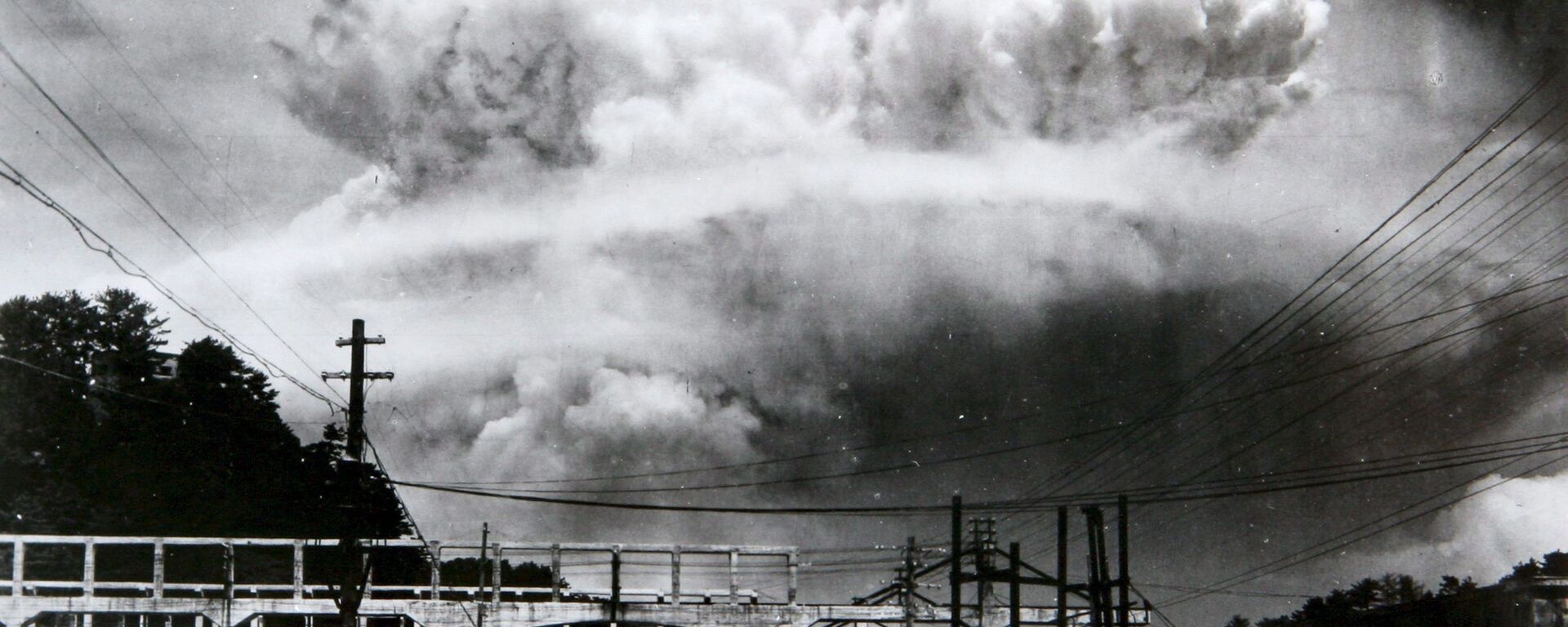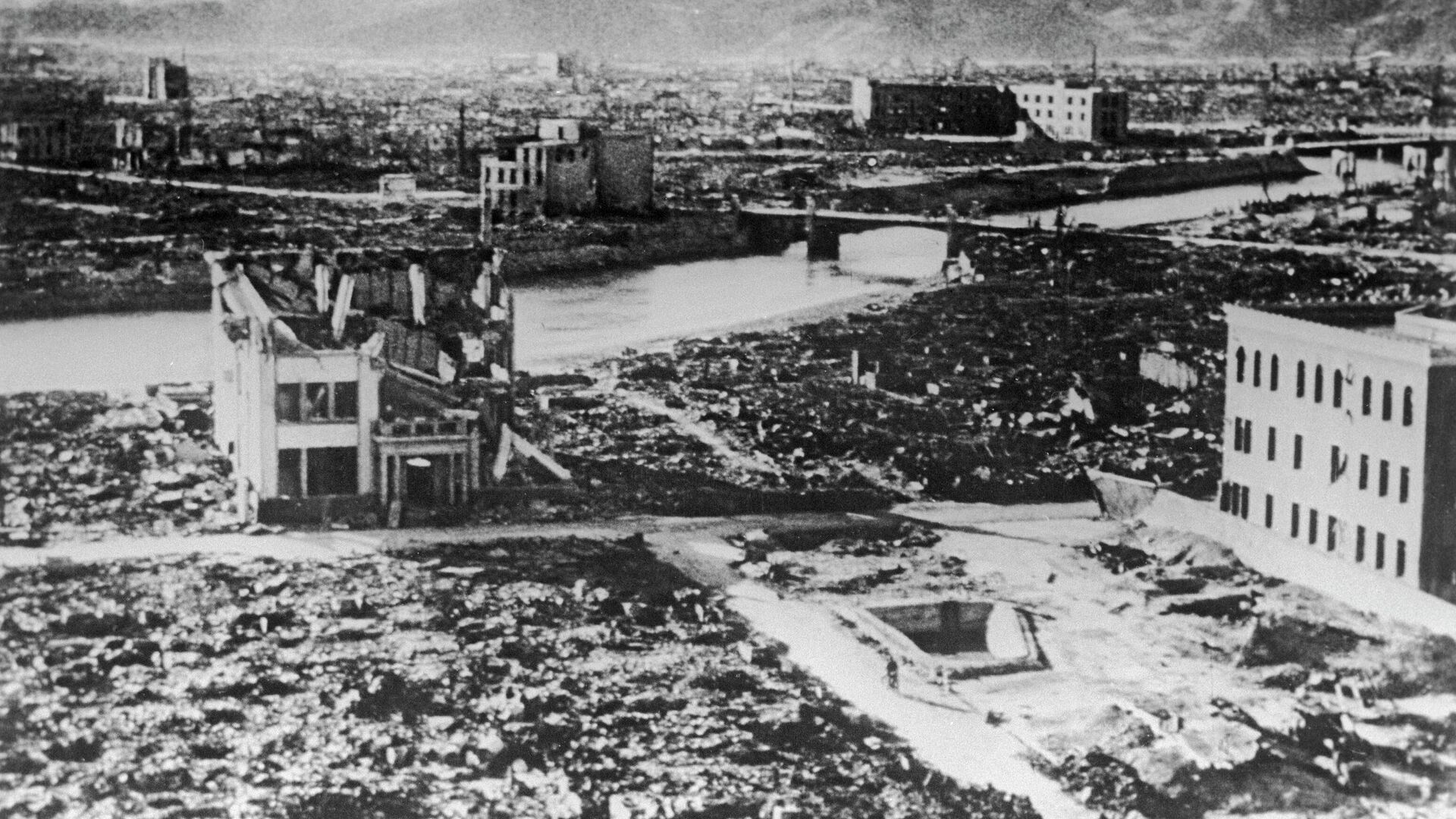https://sputnikglobe.com/20230806/us-russia-should-avoid-nuke-threat-rhetoric-keep-dialogue-on-risk-reduction---think-tank-1112415919.html
US, Russia Should Avoid Nuke Threat Rhetoric, Keep Dialogue on Risk Reduction - Think Tank
US, Russia Should Avoid Nuke Threat Rhetoric, Keep Dialogue on Risk Reduction - Think Tank
Sputnik International
The United States and Russia should avoid any nuclear threat rhetoric and enter a serious dialogue on risk reduction, Arms Control Association Executive Director Daryl Kimball told Sputnik, reflecting on the lessons to be learnt from the first and only use of nuclear weapons in world history in 1945.
2023-08-06T05:54+0000
2023-08-06T05:54+0000
2023-08-06T05:54+0000
world
russia
hiroshima
nagasaki
arms control association (aca)
nuclear deterrence
us
nuclear threat
nuclear race
https://cdn1.img.sputnikglobe.com/img/07e7/08/06/1112415761_0:153:3097:1895_1920x0_80_0_0_ef5dbfd27ad610b7c71ca993161d33bf.jpg
On August 6, 1945, the US dropped the world’s first deployed atomic bomb on the Japanese city of Hiroshima. Three days later, a second bomb was dropped on Nagasaki. Kimball called the two anniversaries "solemn reminders" that any threats to use nuclear weapons are unacceptable. He also pointed out the destructive power of nuclear weapons. "If a Russian or US President were to use nuclear weapons in a conflict in Europe today, for any reason, there is no guarantee it would not escalate and eventually involve the use of hundreds of nuclear weapons, many times more powerful than those that destroyed Hiroshima and Nagasaki. It is estimated that such a war could lead to more than 90 million deaths and injuries within hours," Kimball said. In Hiroshima, 140,000 people died as a result of the atomic explosion and its consequences, and 74,000 in Nagasaki. The vast majority of the victims of the US atomic bombings were civilians.
https://sputnikglobe.com/20221025/why-us-nuking-of-hiroshima-and-nagasaki-should-be-legally-assessed-by-intl-court-1102647785.html
russia
hiroshima
nagasaki
Sputnik International
feedback@sputniknews.com
+74956456601
MIA „Rossiya Segodnya“
2023
Sputnik International
feedback@sputniknews.com
+74956456601
MIA „Rossiya Segodnya“
News
en_EN
Sputnik International
feedback@sputniknews.com
+74956456601
MIA „Rossiya Segodnya“
Sputnik International
feedback@sputniknews.com
+74956456601
MIA „Rossiya Segodnya“
russia-us relations, nuclear race, nuclear threat, nuclear deterrence, hiroshima atomic bombing
russia-us relations, nuclear race, nuclear threat, nuclear deterrence, hiroshima atomic bombing
US, Russia Should Avoid Nuke Threat Rhetoric, Keep Dialogue on Risk Reduction - Think Tank
WASHINGTON (Sputnik) - The United States and Russia should avoid any nuclear threat rhetoric and enter a serious dialogue on risk reduction, Arms Control Association Executive Director Daryl Kimball told Sputnik, reflecting on the lessons to be learnt from the first and only use of nuclear weapons in world history in 1945.
On August 6, 1945, the US dropped the world’s first deployed atomic bomb on the Japanese city of
Hiroshima. Three days later, a second bomb was dropped on
Nagasaki.
"The only sane way out of the deadly game of nuclear deterrence is for [Russian President Vladimir] Putin and [US President Joe] Biden to refrain from any nuclear threat rhetoric — of any kind — and to immediately direct their emissaries to engage in a serious dialogue to reduce nuclear risks and cut their nations’ bloated nuclear arsenals, as both are required to do under Article VI of the nuclear Nonproliferation Treaty," Kimball said.

25 October 2022, 19:38 GMT
Kimball called the two anniversaries "solemn reminders" that any
threats to use nuclear weapons are unacceptable. He also pointed out the destructive power of nuclear weapons.
"If a Russian or US President were to use nuclear weapons in a conflict in Europe today, for any reason, there is no guarantee it would not escalate and eventually involve the use of hundreds of nuclear weapons, many times more powerful than those that destroyed Hiroshima and Nagasaki. It is estimated that such a war could lead to more than 90 million deaths and injuries within hours," Kimball said.
In Hiroshima, 140,000 people died as a result of the atomic explosion and its consequences, and 74,000 in Nagasaki. The vast majority of the victims of the US atomic bombings were civilians.



